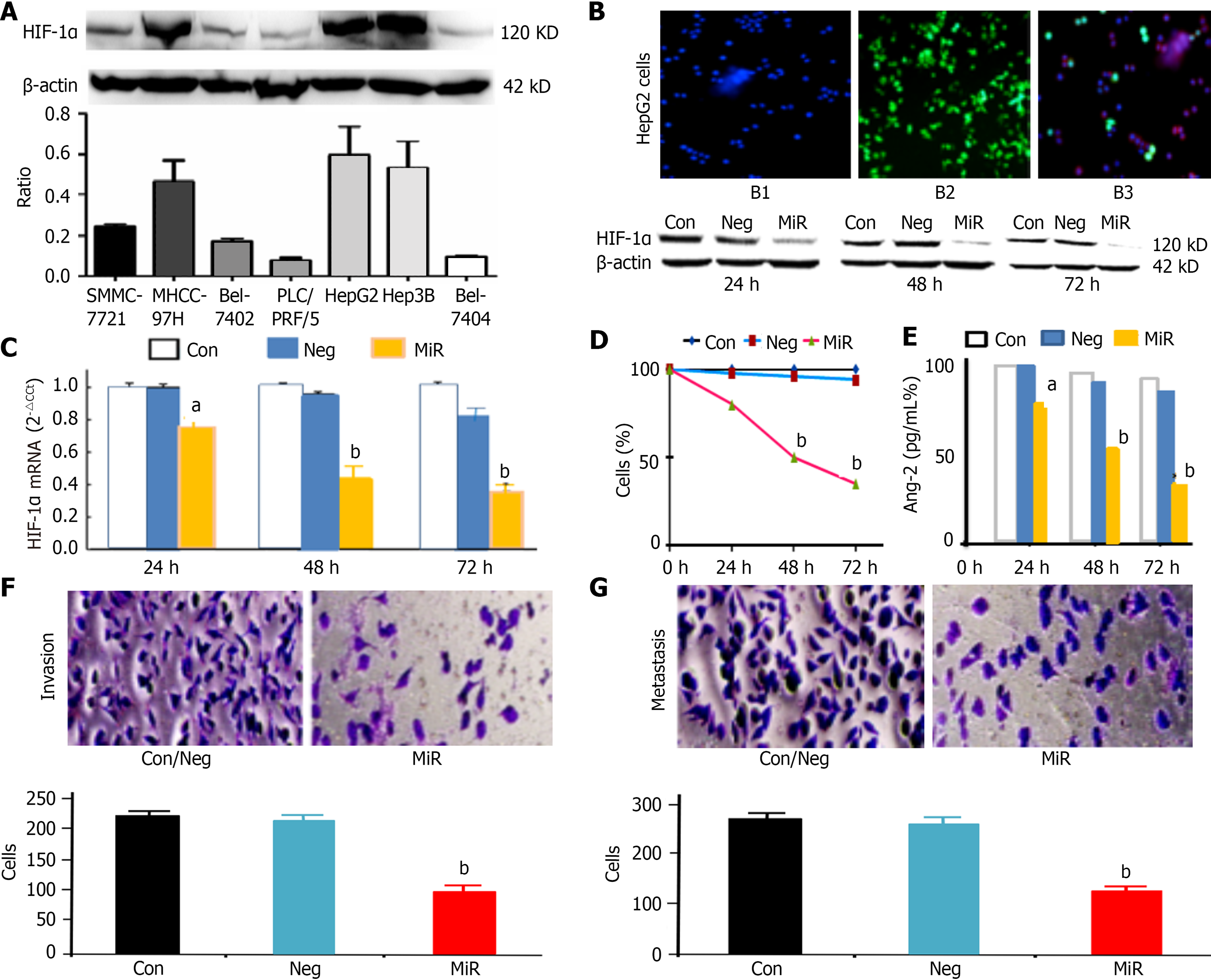Copyright
©The Author(s) 2024.
World J Hepatol. Dec 27, 2024; 16(12): 1480-1492
Published online Dec 27, 2024. doi: 10.4254/wjh.v16.i12.1480
Published online Dec 27, 2024. doi: 10.4254/wjh.v16.i12.1480
Figure 3 Silencing of hypoxia-inducible factor-1α affects angiopoietin-2 and the biological behavior of hepatocellular carcinoma cells.
A: Hypoxia-inducible factor-1α (HIF-1α) expression among different hepatocellular carcinoma cell lines; B: Fluorescence micrographs of HepG2 cells (× 40): Control group (B1, no fluorescence), negative microRNA group (B2), and microRNA group (B3) at 48 hours, with HIF-1α (120 kDa) downregulation illustrated at the protein level by western blotting (B4) with β-actin (42 kDa) as a control; C: Downregulation of HIF-1α mRNA after microRNA (150 mmol/Lol/L) transfection by quantitative real-time polymerase chain reaction; D: Cell proliferation inhibition; E: Angiopoietin-2 downregulation; F: Crystal violet staining and invasion of cells (× 200); G: Crystal violet staining and migration of cells (× 200). HIF-1α: Hypoxia-inducible factor-1α; Con: Control group; Neg: Negative microRNA group; MiR: MicroRNA group; Ang-2: Angiopoietin-2. aP < 0.05 or bP < 0.01, compared with the microRNA or control group.
- Citation: Yang JL, Yang J, Fang RF, Sai WL, Yao DF, Yao M. Hypoxia upregulates hepatic angiopoietin-2 transcription to promote the progression of hepatocellular carcinoma. World J Hepatol 2024; 16(12): 1480-1492
- URL: https://www.wjgnet.com/1948-5182/full/v16/i12/1480.htm
- DOI: https://dx.doi.org/10.4254/wjh.v16.i12.1480









